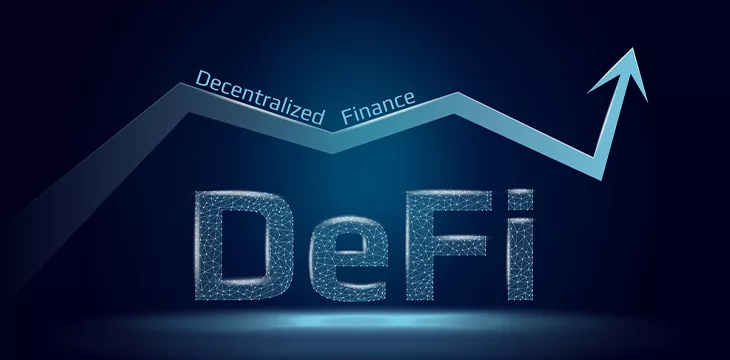|
Getting your Trinity Audio player ready...
|
In two reports published October 11, the European Securities and Markets Authority (ESMA) warned of the “serious risks” decentralized finance (DeFi) poses to investors, including those related to decentralized exchanges and wash trading, and outlined a methodology for categorizing smart contracts.
ESMA is an independent European Union regulatory authority and the body in charge of setting the rules for the digital asset space under the bloc’s Markets in Crypto Assets (MiCA) regulations. The first of its two reports, “Decentralised Finance in the EU: Developments and risks,” described DeFi as “the latest and arguably most innovative development in the crypto area.”
“Although investors’ exposure to DeFi remains small overall, there are serious risks to investor protection, due to the highly speculative nature of many DeFi arrangements, important operational and security vulnerabilities, and the lack of a clearly identified responsible party,” said ESMA.
Despite the aforementioned risks to investors, ESMA concluded that “DeFi does not represent a meaningful risk to financial stability at this juncture, considering its small size.”
However, the regulator suggested this is something that would require monitoring as the “phenomenon” continues to evolve quickly.
ESMA outlined one of the specific concerns related to decentralized exchanges (DEXs), which “purport to eliminate important pain points in the trading of crypto-assets but bear their own flaws and challenges.”
DEX concerns and wash trading
ESMA noted that the anonymity and pseudonymity DeFi allows for can lead to bad market practices in DEXs, such as the spread of wash trading, a scourge of the digital asset space.
Wash trading is a market manipulation practice by which an entity simultaneously sells and buys the same assets or financial instruments, creating a false impression of market activity without incurring real risk or changing a market position.
“Wash trading can exist in traditional markets (and is considered unlawful) but in the case of crypto-assets is facilitated by the pseudonymity attached to blockchains,” said the report. “Many crypto exchanges also inflate their traded volumes on purpose to attract new users and crypto-asset issuers.”
ESMA noted that when it comes to DEXs, all transactions are publicized on chain, which provides some measure of transparency. However, the identity of the account holders, from and to which the transactions are made, remains unknown. This provides the anonymity on which wash trading thrives and creates an environment where illicit practices, such as “pump and dump” schemes, are rife.
“A single user can also operate multiple accounts, something that is made particularly easy by the fact that account creation is virtually cost-free and does not require identity information on Ethereum for example,” suggested ESMA.
But it wasn’t just DEXs that came under the ESMA microscope. In its second DeFi report, the EU regulator focused on issues around smart contracts.
Smart contract categorization and ‘code is law’ concerns
Titled “Decentralized Finance: A categorisation of smart contracts,” the report highlighted a “code is law” principle that it saw as a problem in the sector.
“Smart contracts remain an unregulated phenomenon where the accepted principle is exemplified by the notion that ‘code is law,’ meaning that that whatever is achieved via the code (and, consequently, via a smart contract) merits acceptance by the community, regardless of any moral or legal consideration,” said the report.
ESMA suggests that this principle, coupled with the pseudonymity of developers who deploy smart contracts, has “favored the rise of ‘illicit’ smart contracts, such as ponzi schemes.”
To begin getting to grips with such issues and to better supervise the area, the regulator separated smart contracts into five main indefinable categories: Financial, operational, tokens, wallet, and infrastructure.
ESMA said it would monitor the relative incidence of these smart contract categories over time to potentially propose new rules down the line.
Regulating DeFi and where MiCA fits in
Going forward, ESMA admitted that effectively regulating and supervising DeFi is not easy “because of the technicalities involved and also the need to determine how the current rules may apply to a system that purports to eliminate those entities to which existing rules precisely apply.”
The regulatory authority also noted that “MiCA sets a new comprehensive framework for the regulation of previously unregulated crypto-assets but does not directly address DeFi.”
With this in mind, ESMA outlined plans to increasingly monitor the space, with more reports to come.
“A first report – coinciding with the full entry into application [of MiCA] – will notably assess the development of DeFi and whether it deserves additional regulatory action,” said ESMA. “A second broader review will be provided after two years, leading to a full review after four years.”
These reports, the regulator stated, could be accompanied by legislative proposals. In the meantime, ESMA reaffirmed its commitment to actively monitoring DeFi developments and to contribute to international initiatives on the topic.
CoinGeek Conversations with Dr. Craig Wright: Crypto Regulation Will Make Life Easier for BSV

 02-19-2026
02-19-2026 




